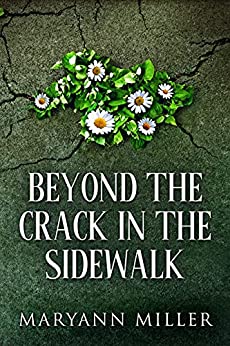A smart, seamless coming-of-age debut novel centered on the lives of three sisters, The Lapone Sisters is a thoughtful and thought-provoking tale that unfolds against the backdrop of a simpler time and place. In The Lapone Sisters, Wilker introduces the dazzling—and decidedly different—Lapone sisters: Schmellda, Sorina, and Esmerelda. Wildly disparate, wholly entertaining, and mesmerizingly comical, these three sisters are swept up in a whirlwind of adventure when each begins to chart a course towards discovering purpose, meaning, and direction.
About The Lapone Sisters: In the summer of 1976, three exceedingly different sisters will launch a journey like no other when each begins the task of uncovering her individual course in the world. Schmellda, the eldest daughter, is a frumpy, self-appointed mother hen cautiously setting out on her own for the first time in her life. Middle sister Sorina is a stunning—and stuttering—beauty tentatively venturing out in search of her dreams. Bold youngest sister Esmerelda is an outspoken, sharp-tongued, unfiltered fireball ready to catapult from the nest.
Born to loving parents who provided a safe and nurturing environment, Schmellda, Sorina, and Esmerelda could not be more different—but when the sisters are swept up in an unimaginable spiral of events that will change their lives forever, they’ll discover more about themselves, and each other, than they ever dreamed possible.
The girls compete and commiserate. They take road trips and take chances. They get makeovers and they make waves. They grow and bloom and blossom. They change and stay the same. They follow their hearts. They even fall in love.
Over the months of the fateful summer, the sisters cross paths, cross wits, and come across an unbelievable menagerie of misfits, loners, losers and dreamers, making for an adventure like no other. For these three sisters, life will never be the same.
A smart, sweeping, and sensational story, The Lapone Sisters invites readers to come along on an unforgettable journey. Novelist Barry Wilker delivers a confident and captivating debut novel that delivers a powerful—and powerfully hopeful—message about following one’s heart without fear. Much more than a tale of three sisters, The Lapone Sisters is a beautifully rendered tale that celebrates taking chances, embracing individuality, innocence, redemption, and the unmistakable power of love. Resplendent with charm, peppered with wry humor, and replete with a richly drawn cast of characters destined to stay with readers long after the final page is turned, The Lapone Sisters is delightful.
EXCERPT:
On this hot, hot Wednesday, I feel like I just came out of a deep fryer. I can already feel my yellow pantsuit and white top clinging to every crevice and fold of my body. I like to think I’m fairly attractive. I don’t know anymore. At five foot seven and 160 pounds, I’m no skinny mini. I know I need to lose weight. And right now, I could kill for a piece of Flanda’s chess pie. Very, very bad idea. Already I buy everything new in a size 14 while I know in my heart this body needs an 18. Self-denial? Obviously! How I wish I had washed my hair this morning! It’s time to let go of Lulu’s “beauty secrets.” It’s high time I acknowledge I don’t have the hair or skin of Lulu or my sisters. Sorina and Esmerelda ditched her regimens long ago. I have to start somewhere. A diet. I’ll start a diet today, I swear. I am making a promise to myself right here and now to make changes in my life.
I know deep down that Sorina and Esmerelda are proud of me no matter what I look like. I’m still their role model, I think. I created a path that helped Sorina mature. When Esmerelda was younger, I was able to show her what feeling special can be like. I’m still protective of my sisters. Maybe I’m a fussy old mother hen. I’m okay with that, but at their ages, I’m sure they would be willing to let me out of the coop to fly free. My sisters are special for me and always will be. Family is paramount.
So here I am. I’m twenty-three and have never had a boyfriend, so my virtue is still intact. Good for me. Right now, I’m not sure I’ll ever have a guy of my own. I’m strong-willed and can be bossy at times. I know my heart is in the right place. I’m kind and live by the Golden Rule. So here I am, out in the open, a protective, loving soul, ready for change and my own love.
Returning to my car and to earth from my trance, I offered, “You know, guys, this is pretty silly — both of you riding with me less than two blocks just to distract me from the inevitable. Silly or not, thank you. Seriously. I love your support.”
“Not a problem,” said Esmerelda as she got in my back seat. Sorina took her favorite spot in the passenger seat next to me.
Two minutes later, we were around the block and across the street. I turned into the lot that serviced three businesses. The parking lot for Hill and Garden Realtors was shared with People’s Bank and Yannie’s, a fast-food restaurant. I parked my car, only to realize I was nearer to the bank than to the realty firm.
Esmerelda made a sudden gasp from the back seat. Sorina and I both felt a quick chill at the sound of her distress. “Look over there,” Esmerelda said as she pointed to a shiny black convertible Mustang that was pulling into a parking space. The car was spotless, with brilliant whitewall tires and chrome spoked wheels. It was in the next row of cars across the lot from us.
Still excited over the sighting, Esmerelda practically yelled, “Wow! What a cool car!”
A woman was driving the Mustang. She wore a red scarf wrapped around her head. It looked like a turban. As we watched, the driver’s door opened. Seconds later, out stretched a woman’s sculpted leg. As the second leg emerged, we saw a stunning woman dressed in black fishnet stockings, black patent leather high-heeled shoes, and a very short, tight red suede dress with black polka dots, cinched at the waist with the narrowest black patent leather belt. The front of the dress came to a strikingly low-cut V, revealing remarkably deep cleavage and a sinuously voluptuous body.
Sorina was flat-out gaping at the woman as Esmerelda said, “Get a load of her! Geez Louise! She must have those girls tucked into a 44E bra. That waist! It has to be, like, twenty-two inches? Her booty is near the same size as her boobs! My goodness. She’s a billboard for something!”
Now standing and locking her car was none other than the illustrious and divine Helena Montgomery, widely known as one of the prides of Nashville. She turned and looked at her reflection in the window of her car. As she did, she reached into her small, quilted black leather Chanel bag, pulled out a lipstick, and proceeded to touch up her perfect lips. After a momentary pause, she deftly removed her headscarf turban, releasing a long, thick, wavy cascade of raven-black hair that fell just above her tiny waist. We continued to stare as Helena leaned back and shook her head. As she did, her hair and its waves fell into perfect position. Everyone in the city knew something of Helena, or at least thought they did. What was certain was that she had been the first runner-up in the Miss Tennessee pageant about eight years ago and a debutante presented by the NYWCC before that. Sorina knew she was only twenty-eight. Helena was one of the most eligible single women in town.
We tried not to stare, we really did. But we just couldn’t help it. Then from somewhere else in space, Esmerelda’s voice broke the silence. “I can’t believe it! She looks like she’s wearing an awful lot of foundation for this early in the morning! And hey! Those black fishnet hose? Give me a break!” Taking a deep breath, she continued, “The little mole on the right side of her face? See? Just above her chin? I swear to you, it was on the other side of her face last week and was higher up! I think she’s wearing that new fad mole. You know, the one advertised in the back of Beauty Today as ‘Move a Mole by Mary Lynn’? It has to be that! How dumb!” We all nodded in unison.
Sorina started to sputter, “Will you l-l-look at her l-l-lips? Is she wearing a b-black lip l-l-liner around her red l-l-lipstick? In the morning?”
Helena Montgomery was a stunning woman, but she always looked the same, whether it was day or night. She always wore the same makeup, and she was always overdressed. By day, she worked as a teller at People’s Bank. Thursday and Saturday evenings, she sang the blues and played piano at the Music Box down near Vanderbilt University. She had a smoky, moody voice, which drew a good crowd. The club itself was a favorite hangout for the over-twenty-one group.
As she walked away from her Mustang, she turned, patting a tissue between her cleavage, and noticed us looking her way. She smiled, waved, and said, in the oddest French-ish accent, “Bonjour, so waunderfool to see yous tress togetter. Eese not a booteeful dase, ooey?”
I waved back and said, “Helena, I haven’t seen you in so long!
You look great! How do you do it?”
“Teese nutting! All diette, diette, diettes and eggeresize.”
Sorina chimed in, “It’s great to s-s-see you too. I hope you are w-w-well.”
Helena smiled and said, “Yous alla take goooood carr. I sam offfff to da wairk.”
Quickly, I added, “I am just starting my new job next door to your bank. I’m working at Hill and Garden Realty. Let’s do lunch sometime? Take care! See you later!”
Sorina whispered, “Puhleeze, I can’t b-b-believe she still has that f-f-false French accent. Really! It’s b-been years since she l-lived in Paris for that wa-wa-one and only s-summer.”
I said, “Okay, girls, it’s already quarter past nine. I’m supposed to be at work in fifteen minutes. That goes for you, too, Sorina. Thank you both for coming this far with me. I am actually feeling pretty calm right now. The time with you two and even seeing Helena really did the trick. This has been fun! We need to get together like this more often. Can we set another time now?”
“G-great idea. But I th-think maybe w-we should t-talk later. You’re r-right about th-the time. Later, girls.” With that Sorina turned, took a step away and stopped. “Wa-wait a m-minute! Esmerelda! W-will you l-look at that!” She pointed to a new Corvette pulling into the lot.
We waited and watched as the Vette stopped in front of the bank. Helena had come to a halt and was eyeing the car and its driver.
Esmerelda smiled at her sisters. “Oh, this ought to be good. Hold on, you two.”
Barry’s book, The Lapone Sisters, is available from:
www.ArchwayPublishing.com, www.Amazon.com, www.BarnesandNoble.com, www.Target.com, www.Walmart.com, www.Booklife.com, www.Bookshop.org and your favorite bookstore.
Barry Wilker spent forty-three years working as an interior designer for a myriad of clients across the United States. Retirement has provided him time to assemble all the fragments of his wild imagination into this, his first novel. He lived for a number of years in the Los Angeles area and currently resides in Nashville, Tennessee.














 Marilea C. Rabasa is a retired high school teacher who moved west from Virginia eleven years ago. Before that, she traveled around the world with her former husband in the Foreign Service. She has been published in a variety of publications. Writing as Maggie C. Romero, Rabasa won the International Book Award, was named a finalist in both the New Mexico-Arizona Book Awards and the USA Best Book Awards, and earned an honorable mention in The Great Southwest Book Festival, for her 2014 release, A Mother’s Story: Angie Doesn’t Live Here Anymore. She lived in Albuquerque, New Mexico, for a number of years and now resides in Camano Island, Washington. Visit her online at:
Marilea C. Rabasa is a retired high school teacher who moved west from Virginia eleven years ago. Before that, she traveled around the world with her former husband in the Foreign Service. She has been published in a variety of publications. Writing as Maggie C. Romero, Rabasa won the International Book Award, was named a finalist in both the New Mexico-Arizona Book Awards and the USA Best Book Awards, and earned an honorable mention in The Great Southwest Book Festival, for her 2014 release, A Mother’s Story: Angie Doesn’t Live Here Anymore. She lived in Albuquerque, New Mexico, for a number of years and now resides in Camano Island, Washington. Visit her online at: 


 Genre: Contemporary adult fiction
Genre: Contemporary adult fiction










Recent Comments